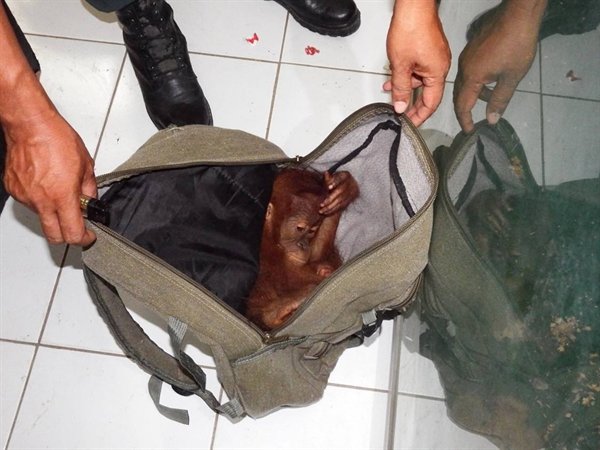Indonesia jails orangutan trader caught with baby ape
JAKARTA: An Indonesian orangutan trader has been jailed for two years after he was caught trying to sell a baby ape from a backpack, a rare conviction for wildlife crime in the country, authorities said Monday.
A court in Medan, on western Sumatra island, also ordered Vast Haris Nasution to pay a 10 million rupiah ($750) fine after he was found guilty last week under laws that ban the trade in orangutans.
Authorities detained him in February in North Sumatra province with the critically endangered Sumatran orangutan in his bag, according to the local resource conservation office, which is responsible for monitoring wildlife crime in the area.
"I hope the sentence can be a deterrent and that other courts across Indonesia follow suit to punish traders as harshly as possible," John Kenedie, conservation office head, told AFP.
There are estimated to be only 6,000 to 7,000 Sumatran orangutans remaining in the wild, with hundreds dying every year due to poaching and deforestation.
The rescued baby ape -- who has been named "Cita Ria", which means "happy feeling" in Indonesian -- is being cared for by the Sumatran Orangutan Conservation Programme (SOCP) and will eventually be returned to the wild.
Under Indonesian law, illegally trading in orangutans can be punishable by up to five years in jail and a 100 million rupiah fine.
Ian Singleton, director of the SOCP, praised the sentence, saying there had been more than 3,000 confiscations of illegal pet orangutans in Sumatra and Borneo since the early 1970s but only a handful of prosecutions, and all of them in the past few years.
But activists said it was only a small step. With wildlife crime and trafficking still rampant, Singleton warned there would be very few orangutans left in the wild in 15 years.
"Effective law enforcement and the threat of serious consequences for those involved is an essential component of the conservation arsenal if there is to be any hope of preventing the extinction of orangutans, and many other heavily traded and persecuted species here," he said.






